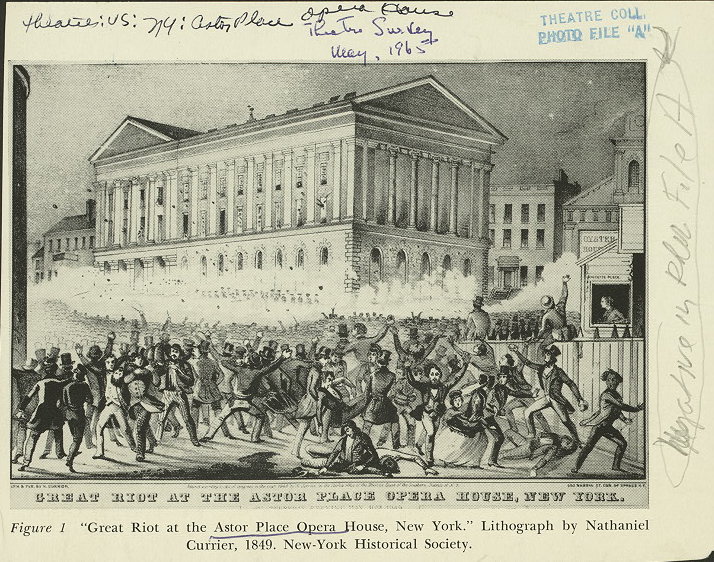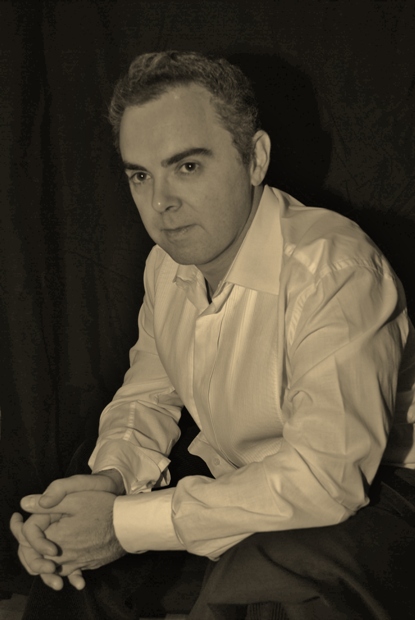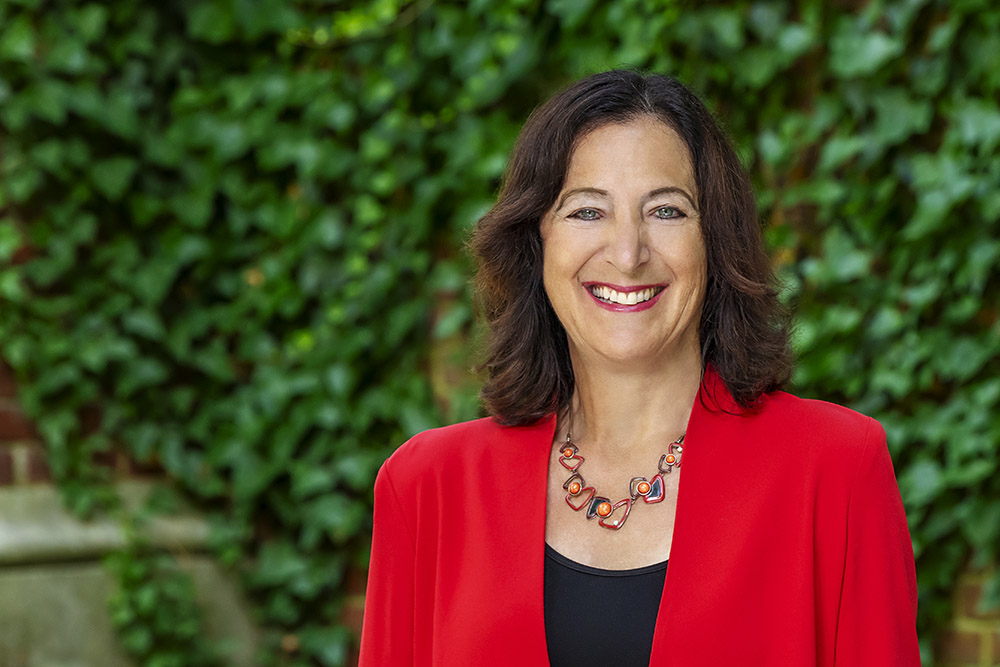The Shakespeare Riots: It's a Bloody Opera at Bay Street Theater

The tale of one of New York’s bloodiest incidents, the 1849 Astor Place Riot, is on its way to Bay Street Theater for a one-night-only world premiere. On Saturday, October 8 at 8 p.m., Divaria Productions presents its latest opera: The Shakespeare Riots.
Directed by Antón Armendáriz Díaz, this opera tells the story of the blood-soaked riot that took place outside the Astor Place Opera House, a theater built by the upper crust for their exclusive use. Not only was this demonstration of social standing seen as a slap in the face to working-class opera enthusiasts, tensions eventually boiled over when the venue’s production of Macbeth opted to cast British actor Charles Macready in the titular role instead of American darling Edwin Forrest.
The explosive riot that followed was so catastrophic — the country’s highest number of civilian casualties due to military action since the American Revolution, totaling 22–31 rioters dead and 48 wounded — that opera and William Shakespeare companies largely abandoned venues in densely populated areas, making theater less accessible to all.

Antón Armendáriz Díaz on The Shakespeare Riots
“It’s so interesting and sad to see how it happened, because people died just trying to get some rights — such simple rights as getting into a theater,” Díaz says, adding that he hopes this production will inspire people to stand up for themselves and their rights. “It doesn’t matter the social level of everybody else, what is important is that we are equal.”
This fascinating look at 19th century classism and nativism stars tenor Nicholas Simpson and actor Greg Seel as Forrest, baritone Michael Nansel and actor Nicholas Thomas as Macready, and soprano Ashley Galvani Bell as the witch, accompanied by La Rivers, Jan Mizushima and Liana Afuni. The accomplished Divaria cast has performed across the United States and Europe. Additionally, students and adults from the local community will be included in the ensemble, and the Long Island Choral Society will join as the show’s chorus.
The production features musical direction and piano accompaniment by Sergio Martinez Zangróniz and original text by Ashley Bell and musicologist Gregory Moomjy. Synthesized alongside the new text is text drawn from Shakespeare and other primary sources, and musical excerpts from Verdi’s Macbeth opera, Mozart and Donizetti.
Díaz notes that he was overjoyed to receive the script from Bell because he’s “fascinated by and a real fan of history” and directing riots is always a thrill, even more so when he’s the first director to translate this premiere opera to the stage. “The excitement is completely different (from directing an opera that’s already been produced),” he says.
With that, he explains, comes the natural feeling of walking on a highwire. Established operas are almost a guaranteed success if produced competently, but to make a premiere production successful, a director must think about how it will work on the stage and how it will translate to its audience.
Díaz plans to take full advantage of the intimate Bay Street stage and make the audience feel like they’re (safely) a part of the action, with plenty of surprises throughout the show. And as far as translating the show’s themes and emotions to the audience, the universal language of music will bear much of the heavy lifting.
“I am more familiar with the opera world because the music gives you everything,” he says, alluding to his role as artistic director of the La Rioja Lirica opera company in Spain. “When you listen to the music … the music tells you what you have to do. It’s difficult to know the rhythm of a sentence when not speaking in my language, which is Spanish, but music gives me the rhythm of speaking.”
The Shakespeare Riots comes after six years of sold-out Divaria shows at Bay Street Theater, including La Traviata, Don Giovanni in New York and Othello. Each of these productions have furthered Divaria Productions’ mission to educate audiences about “the historical circumstances surrounding classic works and watershed moments in operatic history.”
Tickets are $25–$50 and can be purchased at the Bay Street Theater box office, by calling 631-725-9500 or by visiting baystreet.org.



